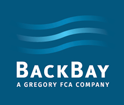This article originally appeared in WealthManagement.com.
While the markets may be acting as if everything is getting back to normal, wealth advisors know that most investors haven’t gotten over the pandemic yet, at least not psychologically.
To be sure, with the S&P 500 and MSCI EAFE indexes back at all-time highs, many portfolios have fully recovered — and then some — from the market lows of March 2020. Yet even as Covid restrictions are lifting and businesses are opening back up, there are plenty of signs that the fear and stress triggered by the pandemic and ensuing economic downturn have yet to subside.
This is manifesting in a variety of forms. In some cases, it is leading to an aversion to risk-taking. More than half of high net worth investors believe “de-risking their portfolios” will be a top priority over the next 12 to 18 months, according to a recent survey by BDO. In other cases, investors aren’t as trusting of the markets as they once were. A survey of affluent investors by FactSet released in April found that 85% only want to invest in companies they know and trust going forward. Overall, nearly 60% of affluent investors believe their wealth planning strategies will need to be altered as their priorities, sensibilities, and situations have changed.
In this type of environment, how can advisors reassure disquieted clients in the second half of the year with their messaging and communications?
Acknowledge what we’ve been through. While behavioral finance experts warn us not to fixate too much on the recent past to avoid the trap of recency bias, history teaches us not to ignore the lingering after-effects of true Black Swan events. The Great Depression and the global financial panic changed investor attitudes for years and reset goals, and the pandemic is likely to do the same.
In other words, this is not the time to revert to the communications strategy of 2019. Instead, be willing to acknowledge the impact of the pandemic and your clients’ anxieties in client communications and thought leadership.
Talk about values in addition to value. For many investors, the pandemic exposed inequities in the economy and the healthcare system. For others, it offered a glimpse of the type of devastation that climate change could trigger. As Vikram Gandhi, who developed and teaches Harvard Business School’s first course on impact investing, recently wrote: “Think of the magnitude of destruction, over and above the catastrophic effects of 2020, if coasts begin to disappear, fertile lands go barren, and if millions are displaced? Then consider that there are no vaccines to contain rising sea levels or tame extreme weather events like flooding, hurricanes, and wildfires.”
Not surprisingly, 72% of affluent investors say they now want to learn more about responsible investing, according to the FactSet survey. And a separate survey by the consulting firm Capgemini found that investors who already embrace sustainable investing want to commit a greater percentage of their portfolios to these strategies after the pandemic. To help them do that, advisors need to communicate their willingness and ability to reflect client values into their wealth plans.
More than that, advisors need to communicate on a much more personal level than ever before to convey their empathy and interest in truly understanding their clients’ beliefs and principles. While embracing the personal seems more like life planning than wealth planning, that’s actually one of the biggest takeaways of the pandemic — that our physical and financial health and psychological and spiritual well-being are all inexorably linked.
Paul J. Lim is Vice President and Head of the Asset Management and Impact Investing group at BackBay Communications, an integrated public relations, content marketing, and branding firm focused on asset managers, fintech, impact investing and private equity clients.


